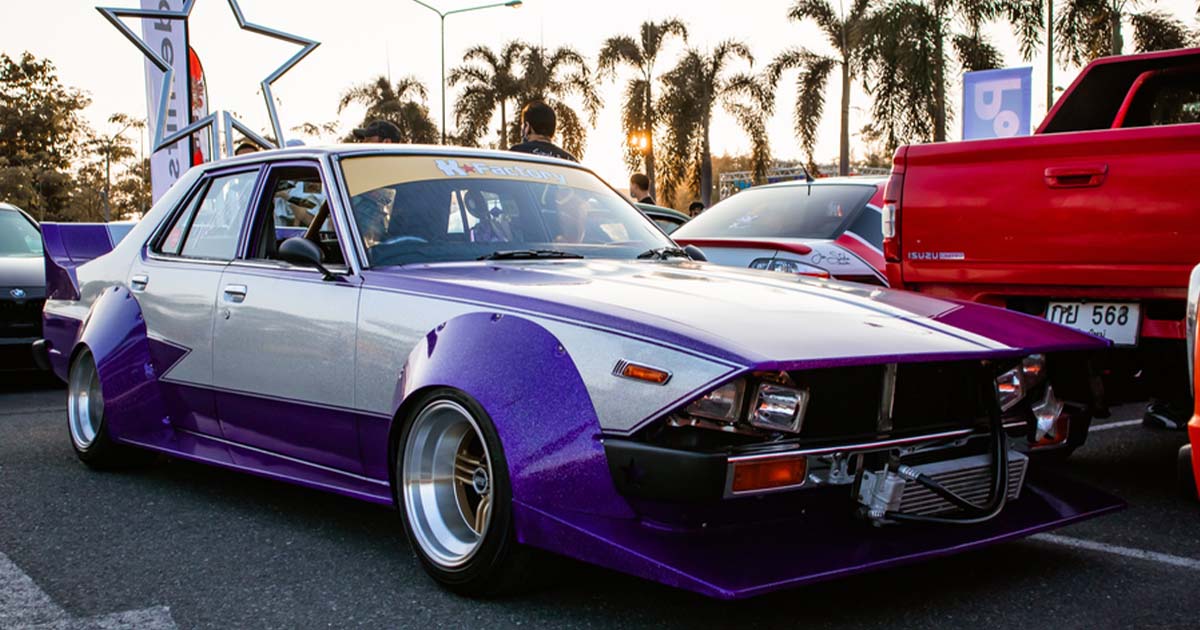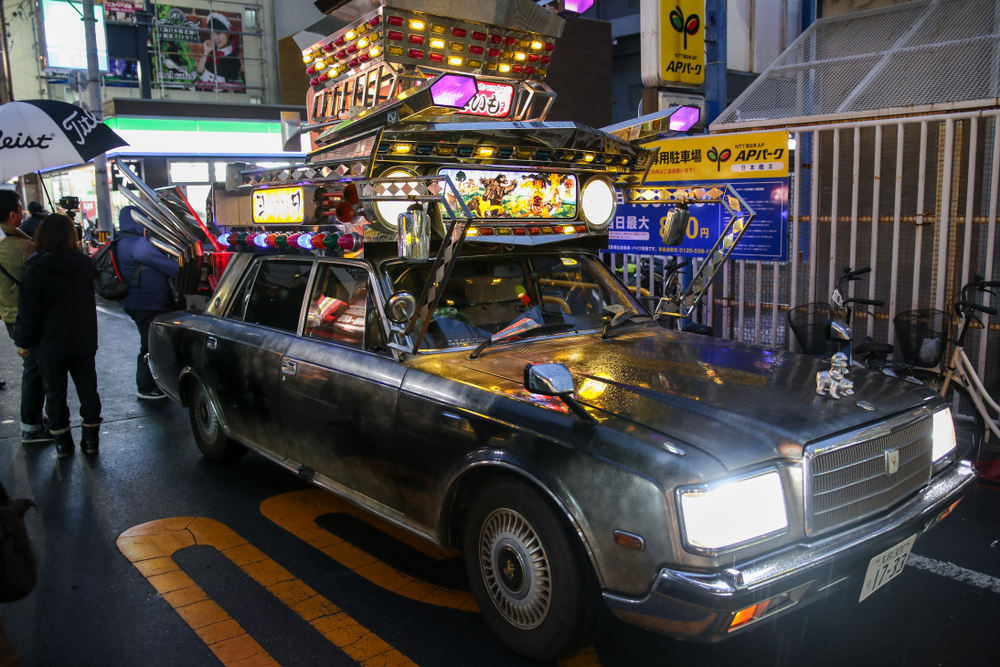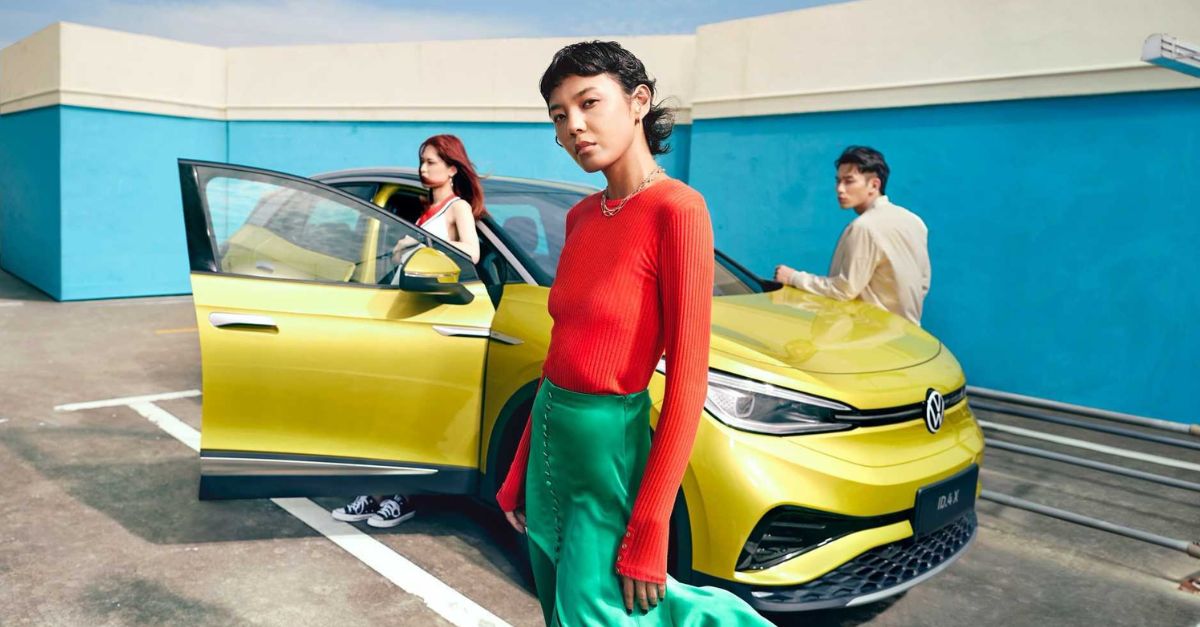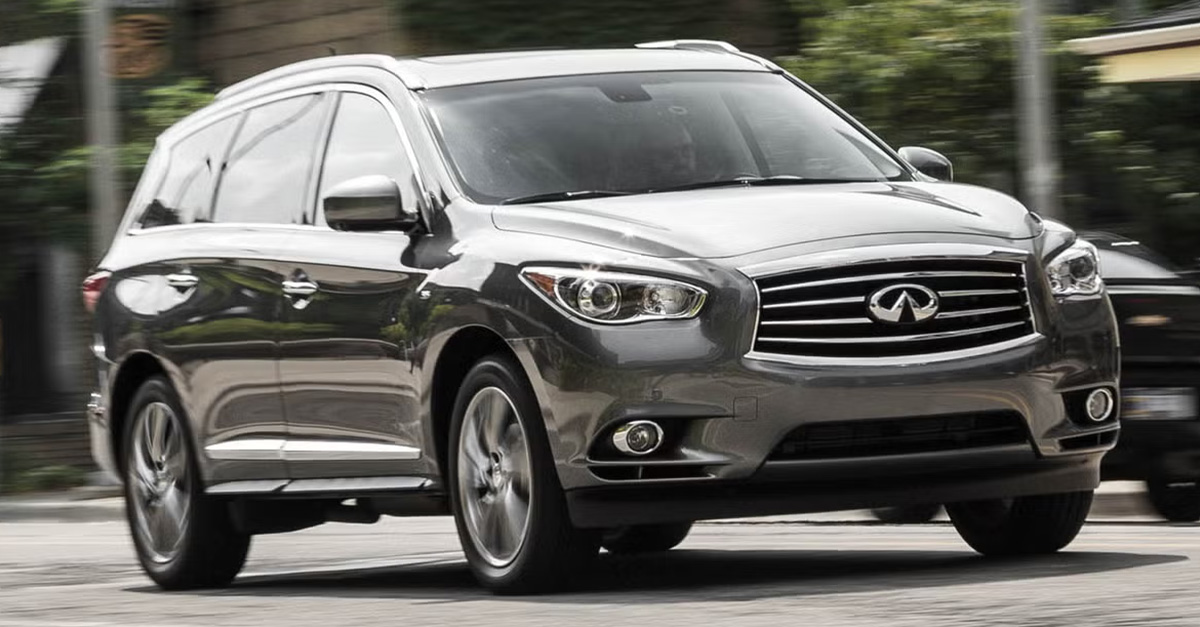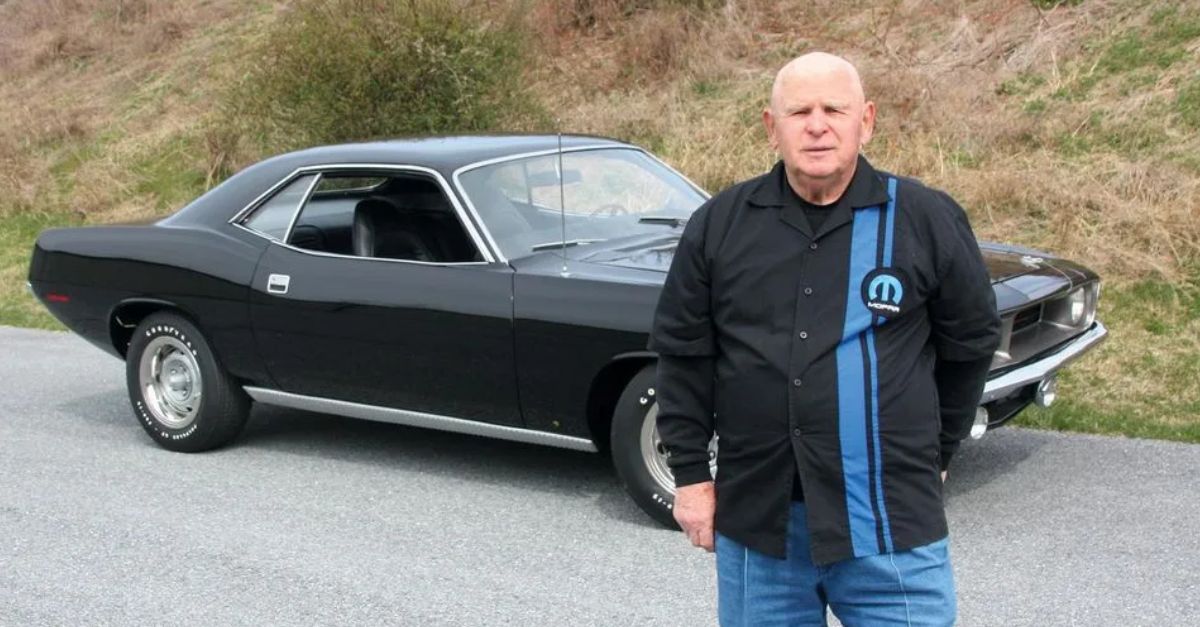The Bizarre World Of Bosozoku Cars
From Southern California’s lowriders to Sweden’s Raggare greasers, wild car cultures exist all over the globe—but none turn heads quite like Japan’s Bosozoku.
Born in the 1950s from rebellious biker gangs, Bosozoku has transformed into a full-blown subculture of extreme mods, roaring engines, and unapologetic style. It’s loud, flashy, and unlike anything else on the road.
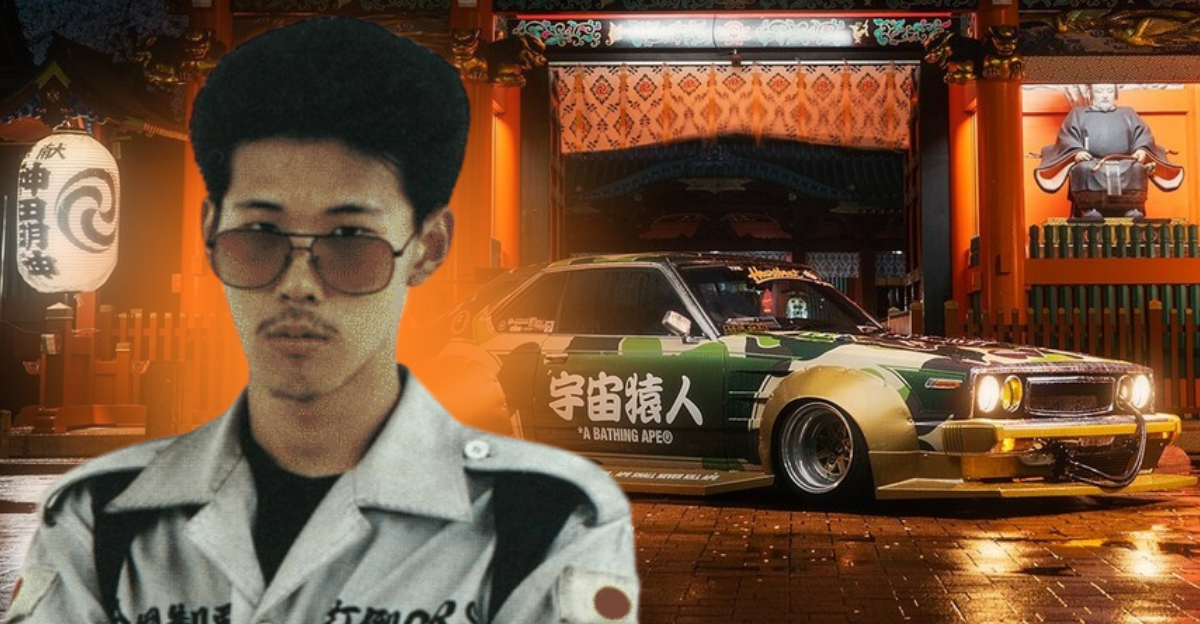
The Origins Of Bosozoku
Bosozoku was born during Japan’s post-war reconstruction era. As people rebuilt what was lost and industry picked up again, it seemed like the country was on the fast track to a bright future.
But nothing could be further from the truth for some ex-Kamikaze pilots.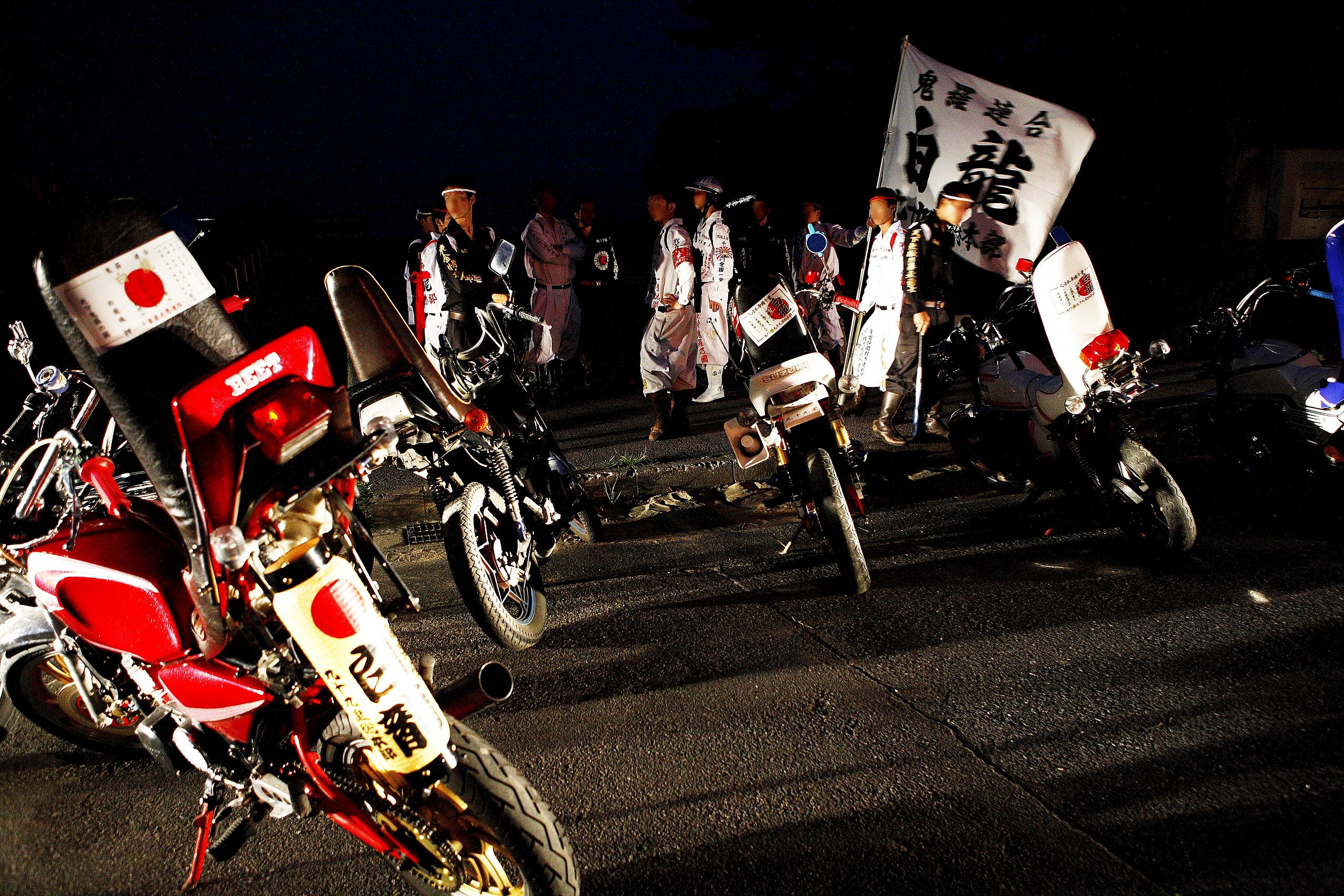 KILLER.Group.in.CHIBA, CC BY-SA 4.0, Wikimedia Commons
KILLER.Group.in.CHIBA, CC BY-SA 4.0, Wikimedia Commons
The Kamikaze
Kamikaze were an elite unit of the Japanese army, made famous for their one, harrowing task: to die in the pursuit of victory. You see, kamikaze pilots would fly their specially designed, highly explosive planes into enemy Navy ships.
This form of attack was more accurate and damaging than traditional attacks, but victory came at a high price: Nearly 3,800 kamikaze perished during WWII.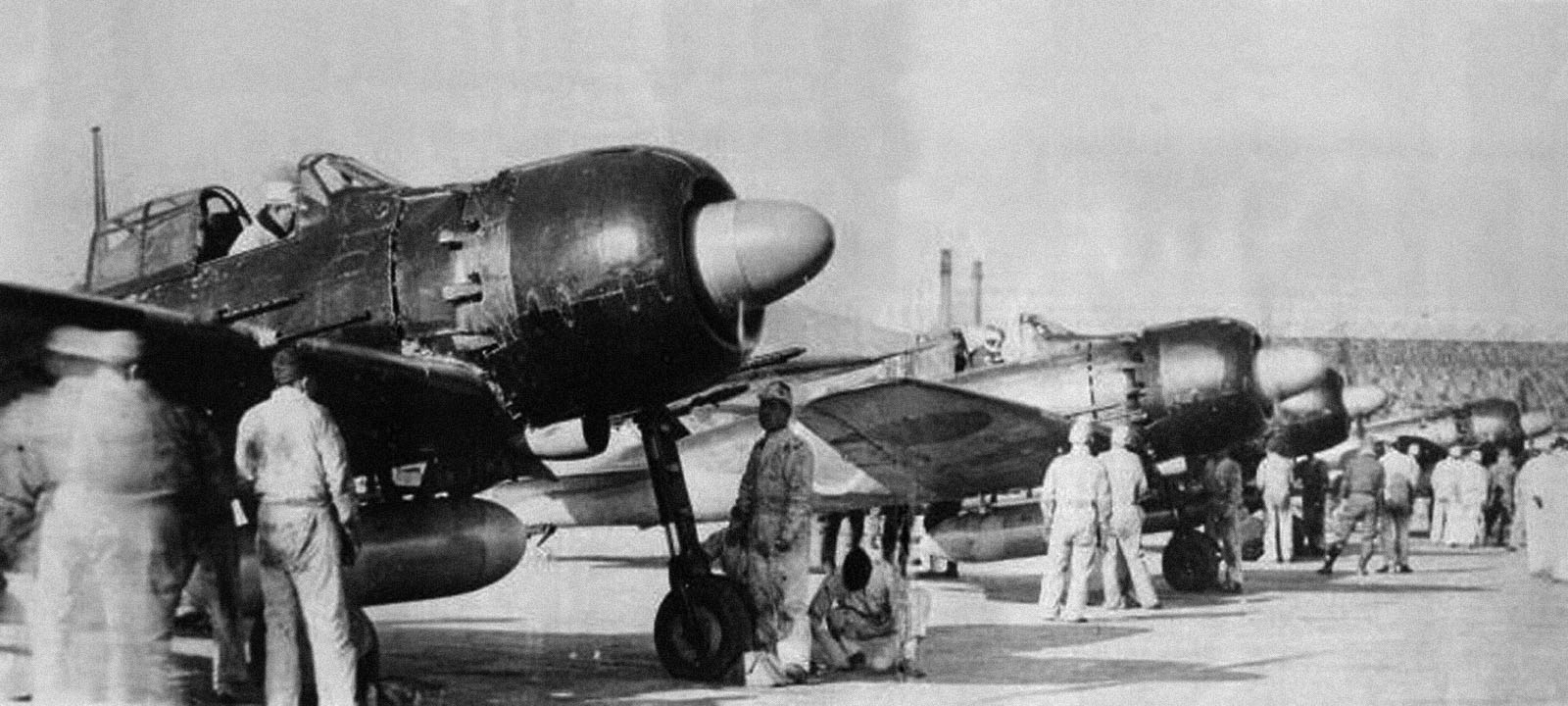 Unknown Author, Wikimedia Commons
Unknown Author, Wikimedia Commons
Searching For Excitement
The kamikaze pilots who had never been deployed, or worse yet, who had failed their mission, felt like outsiders when they returned home. Restless and unable to find their place in society, some of these young veterans started looking for an adrenaline rush.
And they found it in American greaser culture.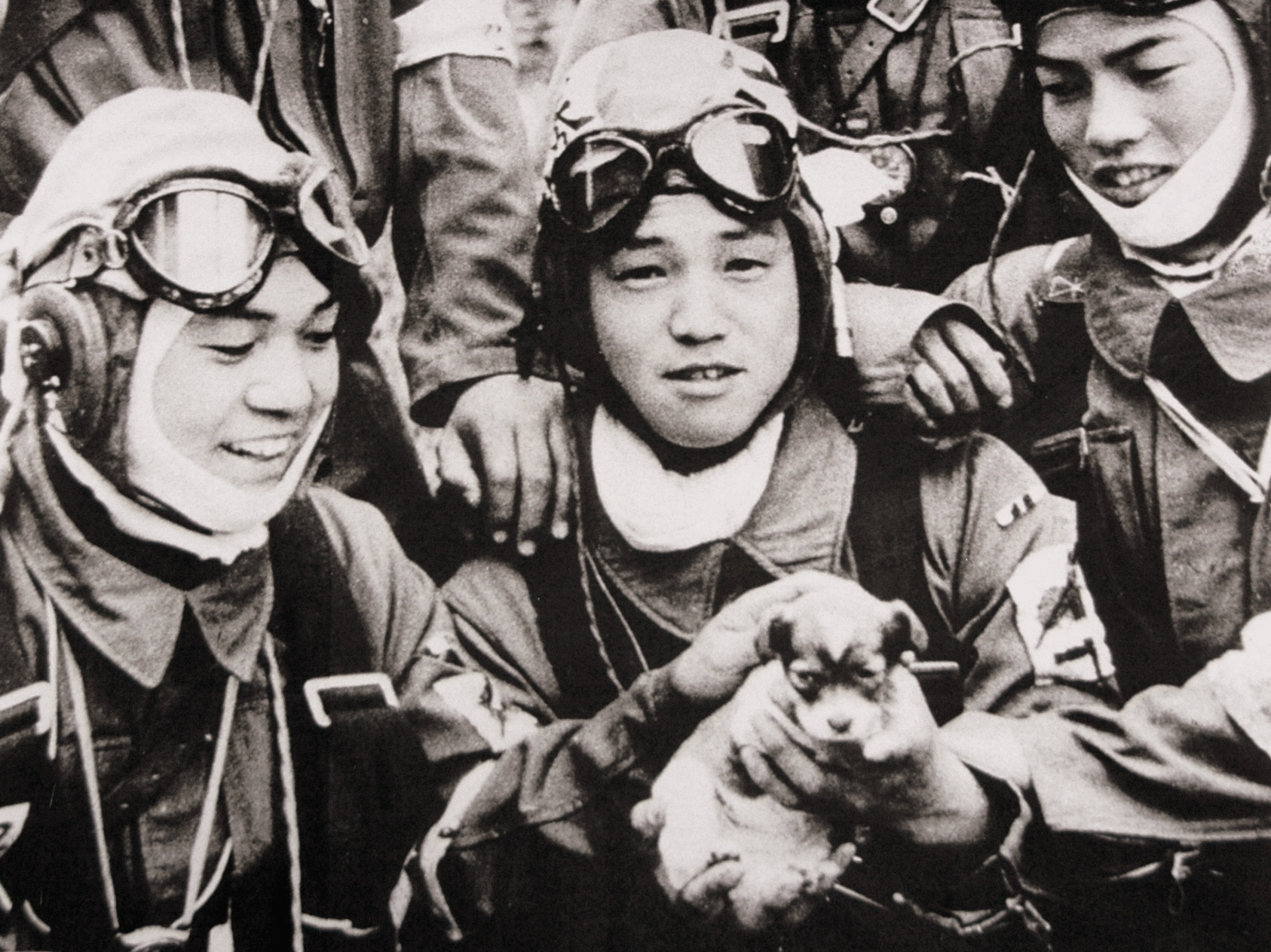 Unknown Author, Wikimedia Commons
Unknown Author, Wikimedia Commons
American Influence
After WWII, imported American films took Japan by storm—introducing restless young veterans to leather jackets, fast bikes, and rebel swagger. Movies like The Wild One and Rebel Without a Cause lit a fire, and soon these veterans began crafting their own identity.
Inspired by greaser style and biker bravado, they gave birth to something uniquely Japanese: Bosozoku.
Bosozoku Style
The easiest way to describe Bosozoku style is as a combination of American chopper and British café racer aesthetics. Raised handlebars and oversized fairings are two popular modifications on Bosozoku motorcycles.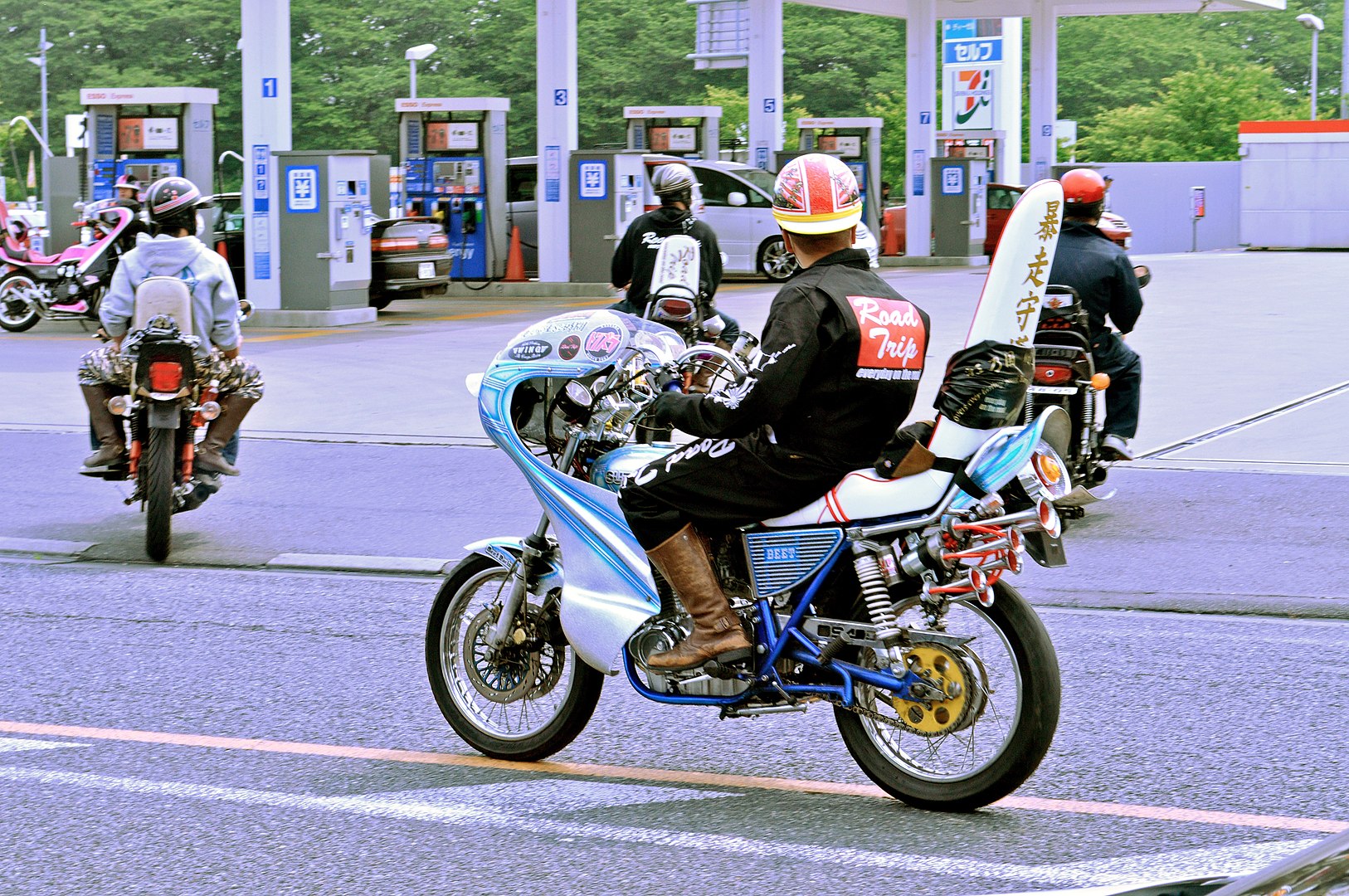 SC36, CC BY-SA 3.0, Wikimedia Commons
SC36, CC BY-SA 3.0, Wikimedia Commons
A Colorful Canvas
Custom paint jobs are the most eye-catching aspect of Bosozoku bikes. Gas tanks and fenders are often painted in bold colors and designs. Flames are common designs, as is the "rising sun" imagery that speaks to the culture’s kamikaze origins.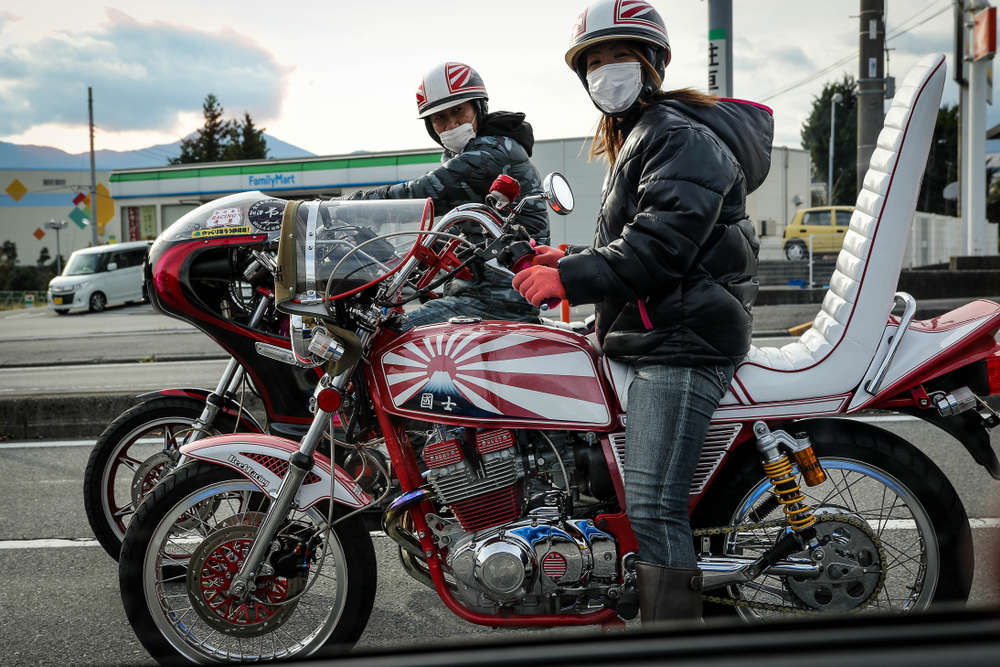 WildSnap, Shutterstock
WildSnap, Shutterstock
Different Strokes For Different Folks
The different styles of motorcycle modifications can denote one’s regional affiliation. For example, Bosozoku from Ibaraki are known for stacking three or four oversized fairings on their bikes, as well as colorful, flashing lights.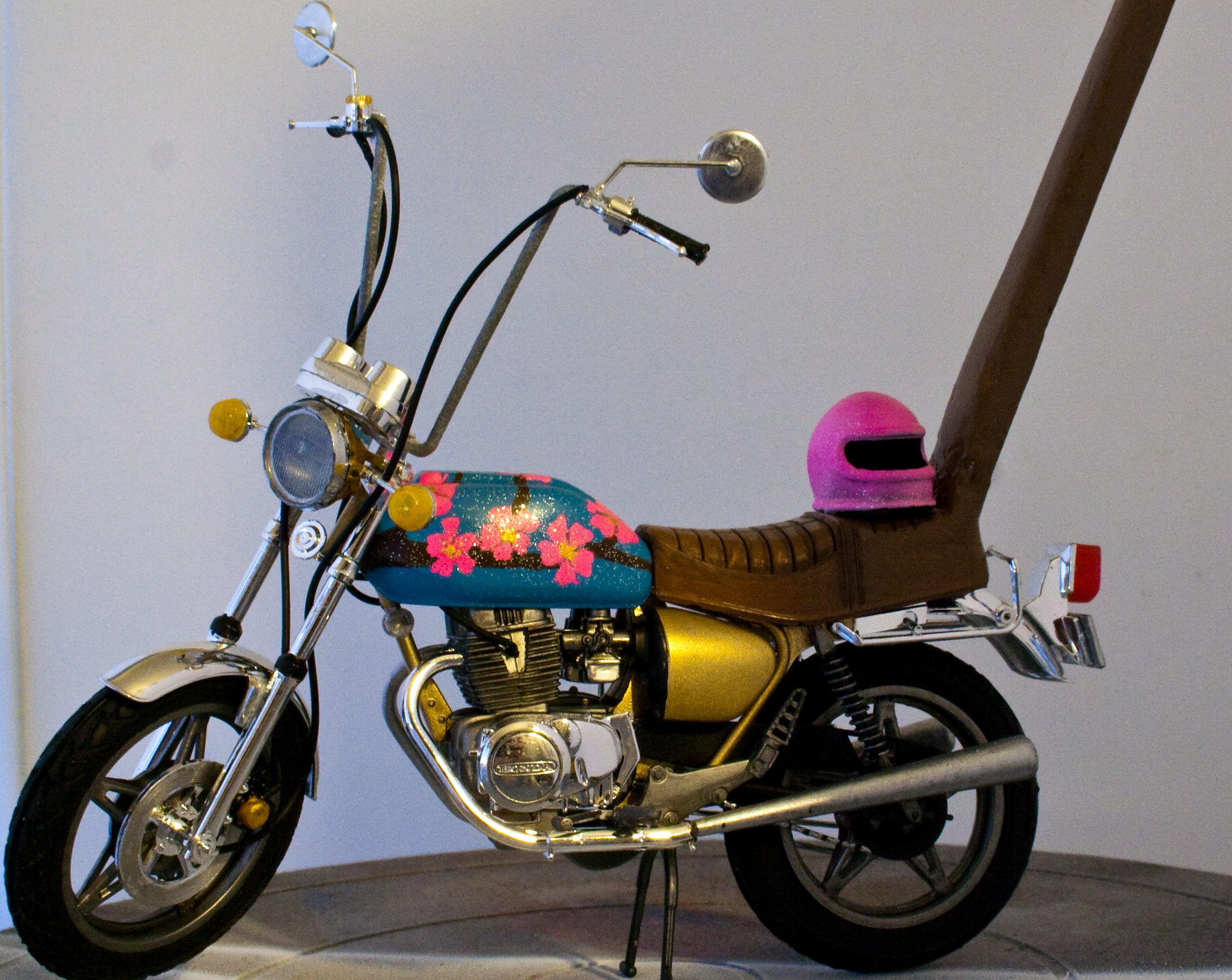 Ian Pattinson, Flickr
Ian Pattinson, Flickr
Bosozoku Cars
In recent years, Bosozoku flair has shifted from bikes to cars—and it’s just as wild. Flashy paint jobs are just the beginning. With oversized body kits, exaggerated exhaust pipes, and outrageous designs, Bosozoku cars crank the bizarre style up to eleven.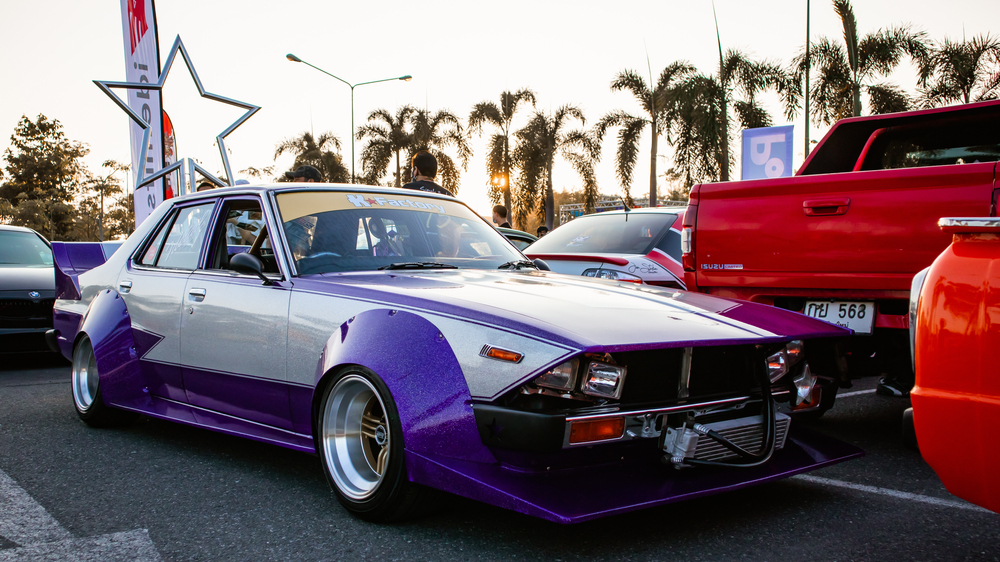 Golf-Photo, Shutterstock
Golf-Photo, Shutterstock
Bosozoku Cars
Bosozoku cars are unique for their oversized bumpers that look like shelves protruding from the front of the car. They also feature custom exhaust systems with chrome pipes that can extend outward and even rise several feet above the car.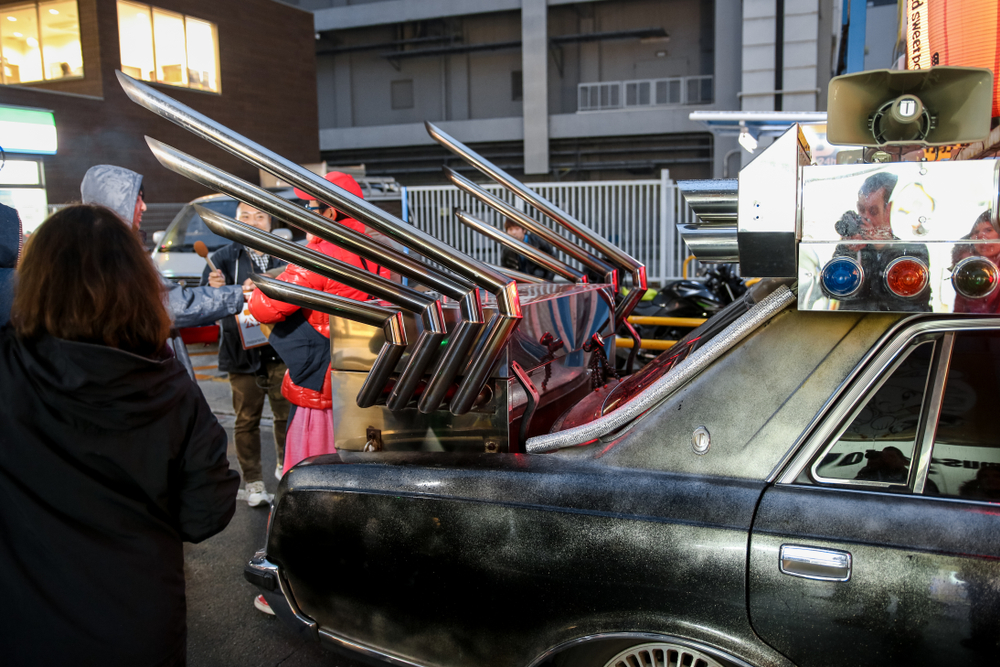 WildSnap, Shutterstock
WildSnap, Shutterstock
Unique Mods
Bosozoku cars have also been influenced by unique aspects of Japanese car culture. Yanky cars, for example, originated in Osaka and are recognizable for their wide fenders and wings. VIP-style cars often feature over-exaggerated embellishments, like shiny chrome features on the interior and exterior of the car.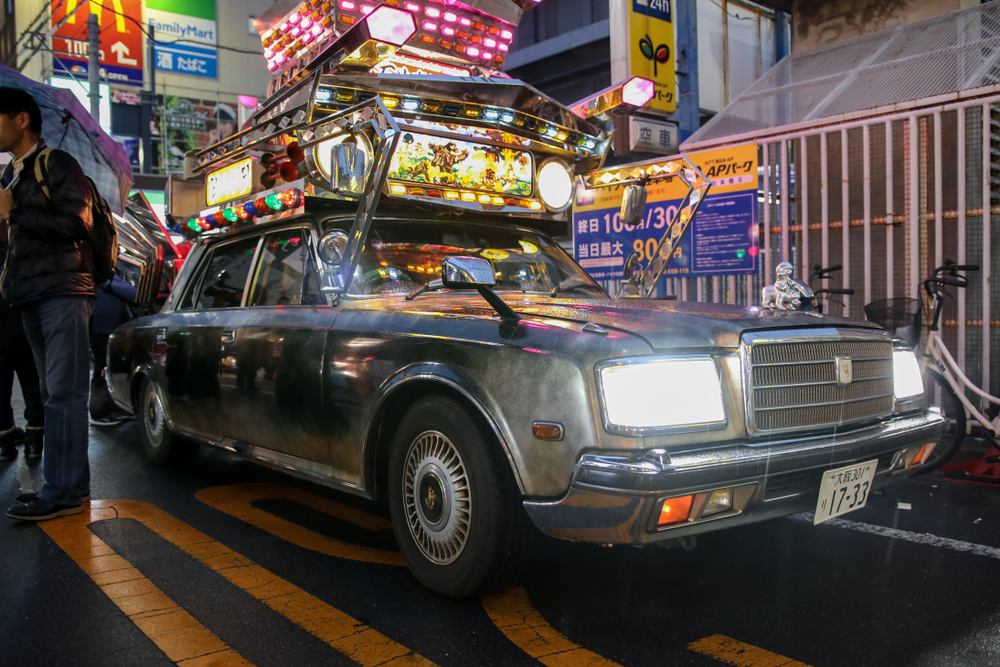 WildSnap, Shutterstock
WildSnap, Shutterstock
Bosozoku Style
True to its American greaser influence, pompadour haircuts are common among Bosozoku. Baggy pants, jumpsuits, and combat boots are also common elements in Bosozoku style.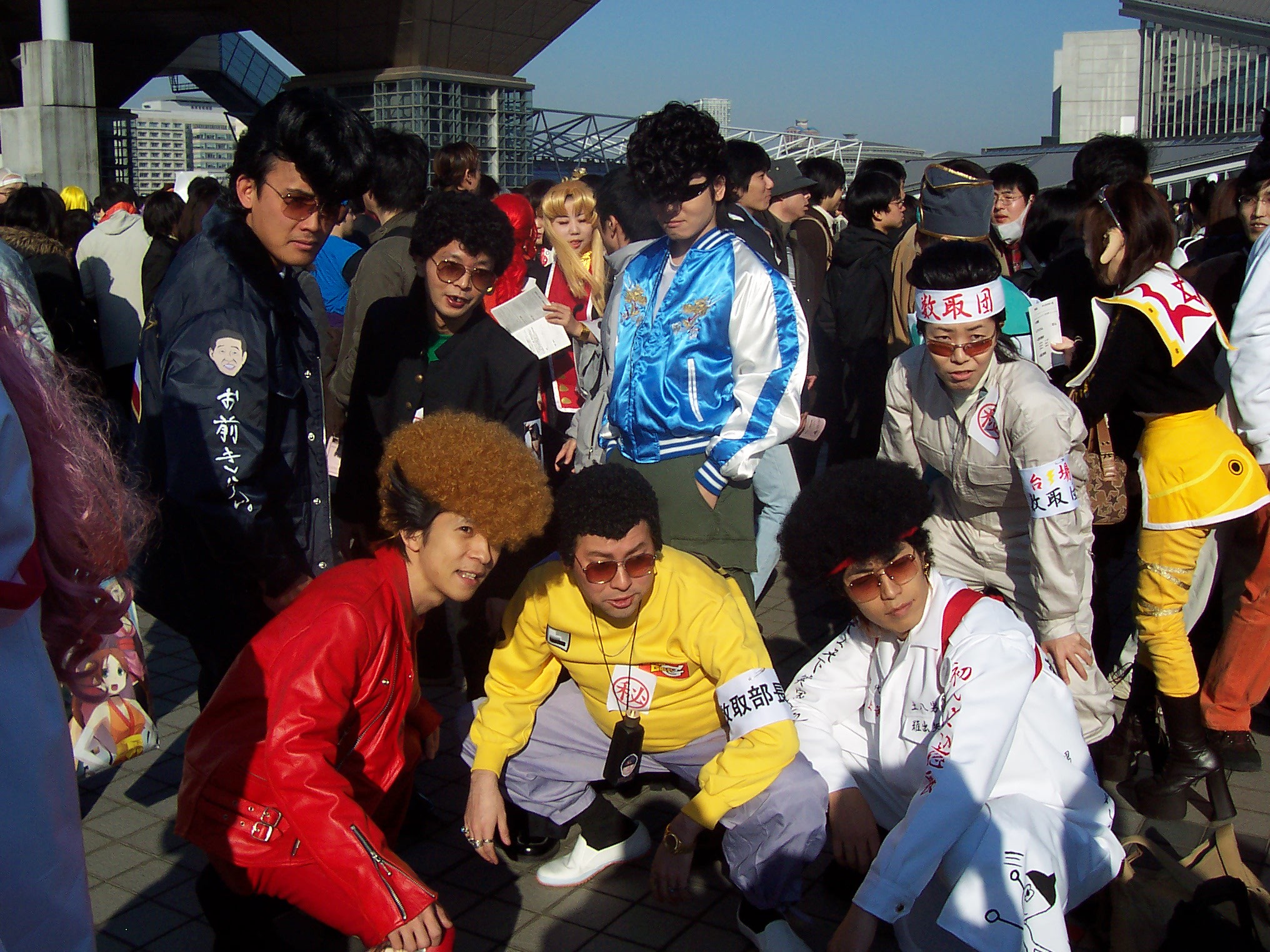 stormstill, Flickr
stormstill, Flickr
Their Uniform
The iconic Bosozoku jumpsuits, known as tokkō-fuku—or “special attack clothing”—were more than just uniforms. Decked out with bold embroidery and slogans repping their biker gang, these outfits made a statement loud and clear.
Often worn open, they revealed the bandaged torsos underneath—a nod to toughness, rebellion, and the over-the-top flair that defined Bosozoku style.
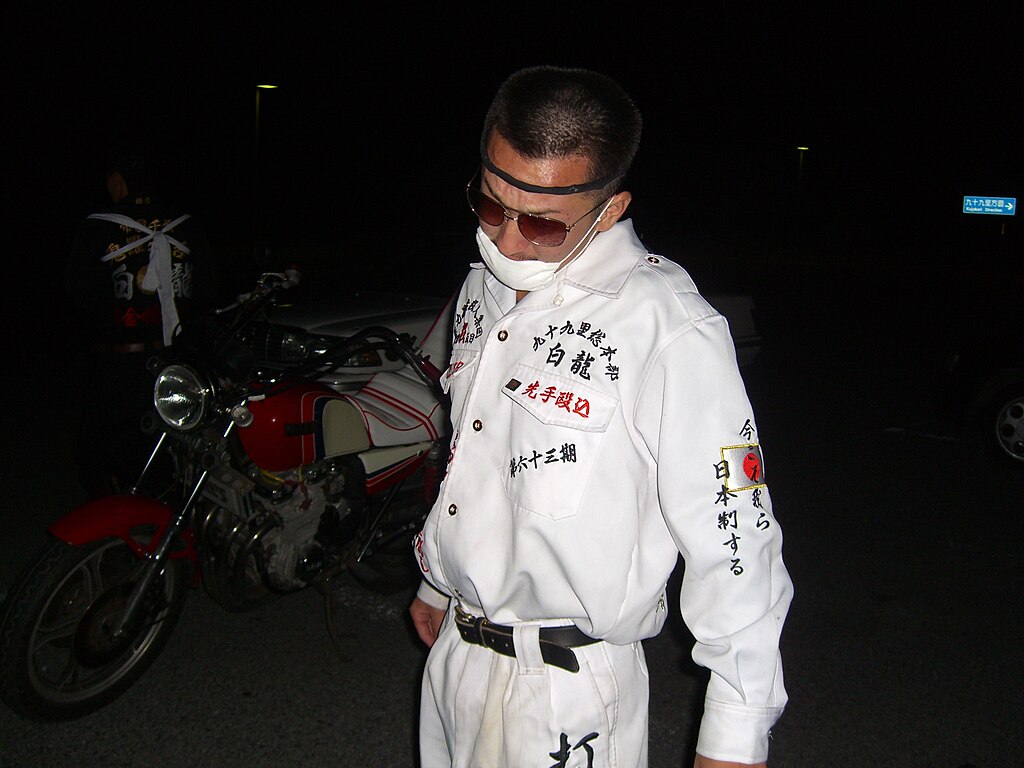 KILLER.Group.in.CHIBA, CC BY-SA 4.0 ,Wikimedia Commons
KILLER.Group.in.CHIBA, CC BY-SA 4.0 ,Wikimedia Commons
Bosozoku Girls
Like their male counterparts, Bosozoku girls are easily identifiable by their fashion. Bright colors, customized schoolgirl uniforms, and leather jackets are all features of their style. Many Bosozoku girls also have tattoos and like to wear long nails.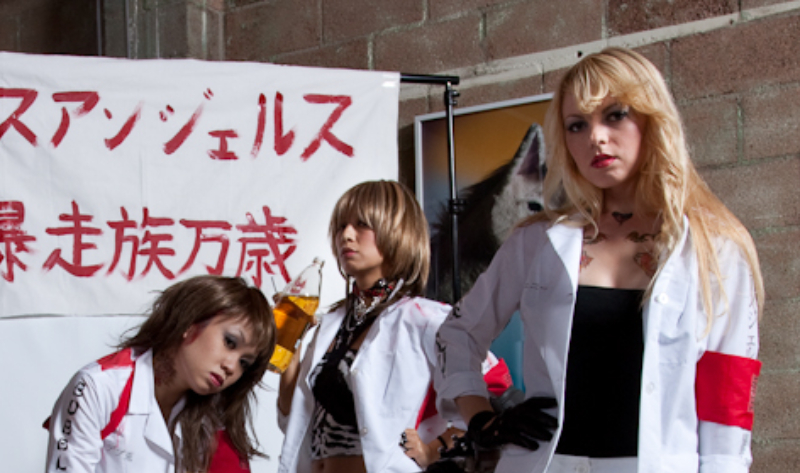 Space Pirate Queen, Flickr
Space Pirate Queen, Flickr
The Early Days
In the early 1950s, brands like Yamaha, Kawasaki, and Honda made a name for themselves by manufacturing cheap, reliable motorcycles. That was a boon for the former kamikaze pilots, who banded together to ride around the country.
Because of all the noise from their bikes, these early Bosozoku were called Kaminari-zoku, which means “thunder tribes.”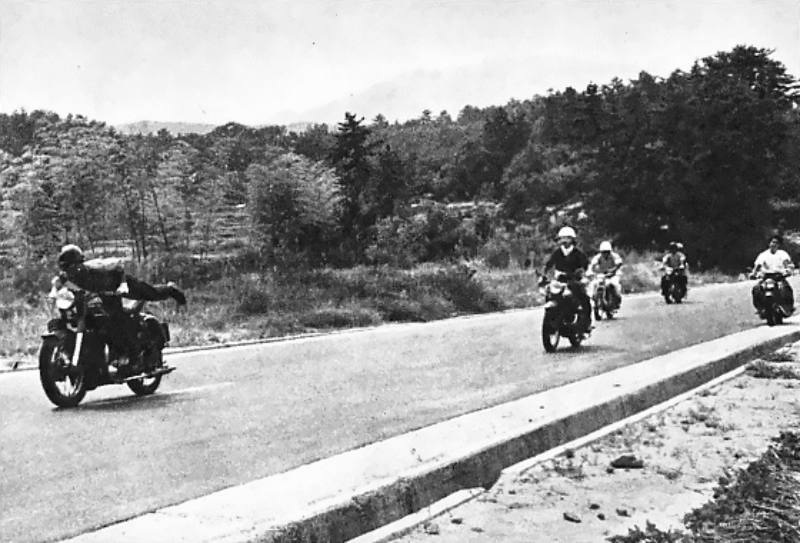 Unknown Author, Wikimedia Commons
Unknown Author, Wikimedia Commons
Open Acceptance
Kaminari-zoku began to pick up steam in the 1960s, attracting young Japanese who hadn’t fought in the war but craved excitement all the same. And it wasn’t just men who were joining the ranks.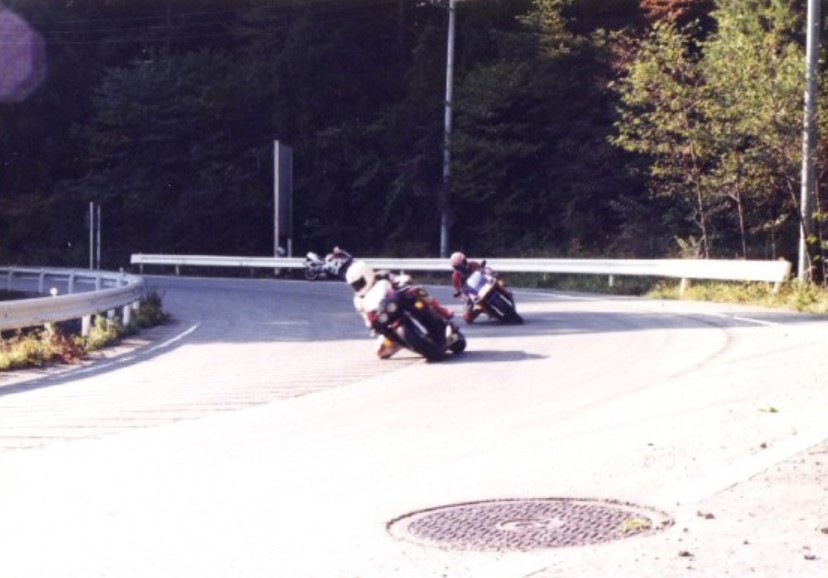 Baba Minbu, Wikimedia Commons
Baba Minbu, Wikimedia Commons
Ladies Can Join, Too
The women of Bosozoku were every bit as bold and rebellious as the men. While many joined through boyfriends already in the gangs, they didn’t stay in the background for long. With their fearless attitude and love of danger, these girls quickly showed they had just as much fire—and just as much right to ride.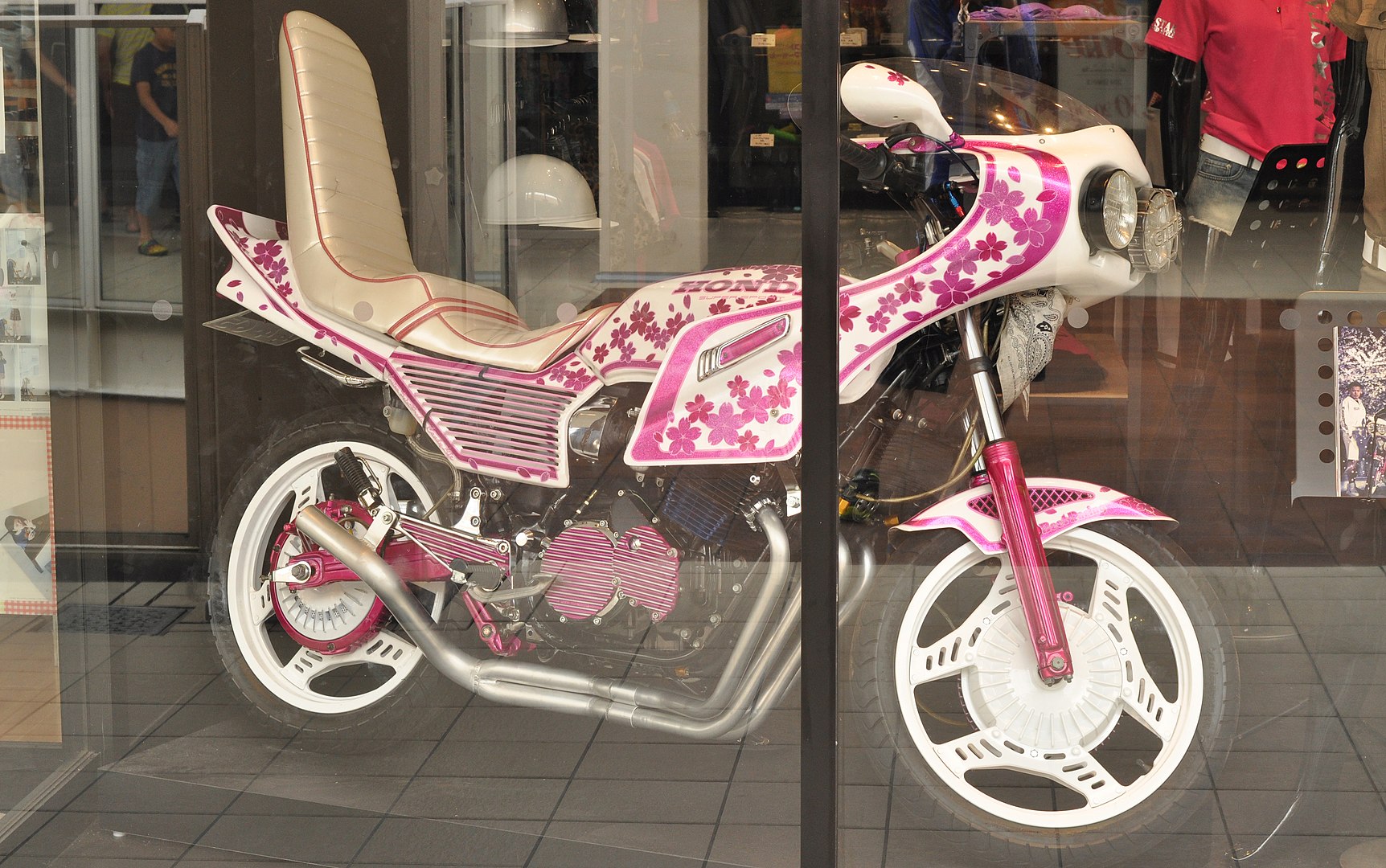 Ocdp, CC BY-SA 3.0, Wikimedia Commons
Ocdp, CC BY-SA 3.0, Wikimedia Commons
Setting Themselves Apart
Tattoos and hand signals became ways to identify different groups, and the motorcycles were customized with painted gas tanks, extravagant fairings, and big, bold exhaustive systems.
The Kaminari-zoku were turning into bona fide biker gangs—and the authorities were taking notice.
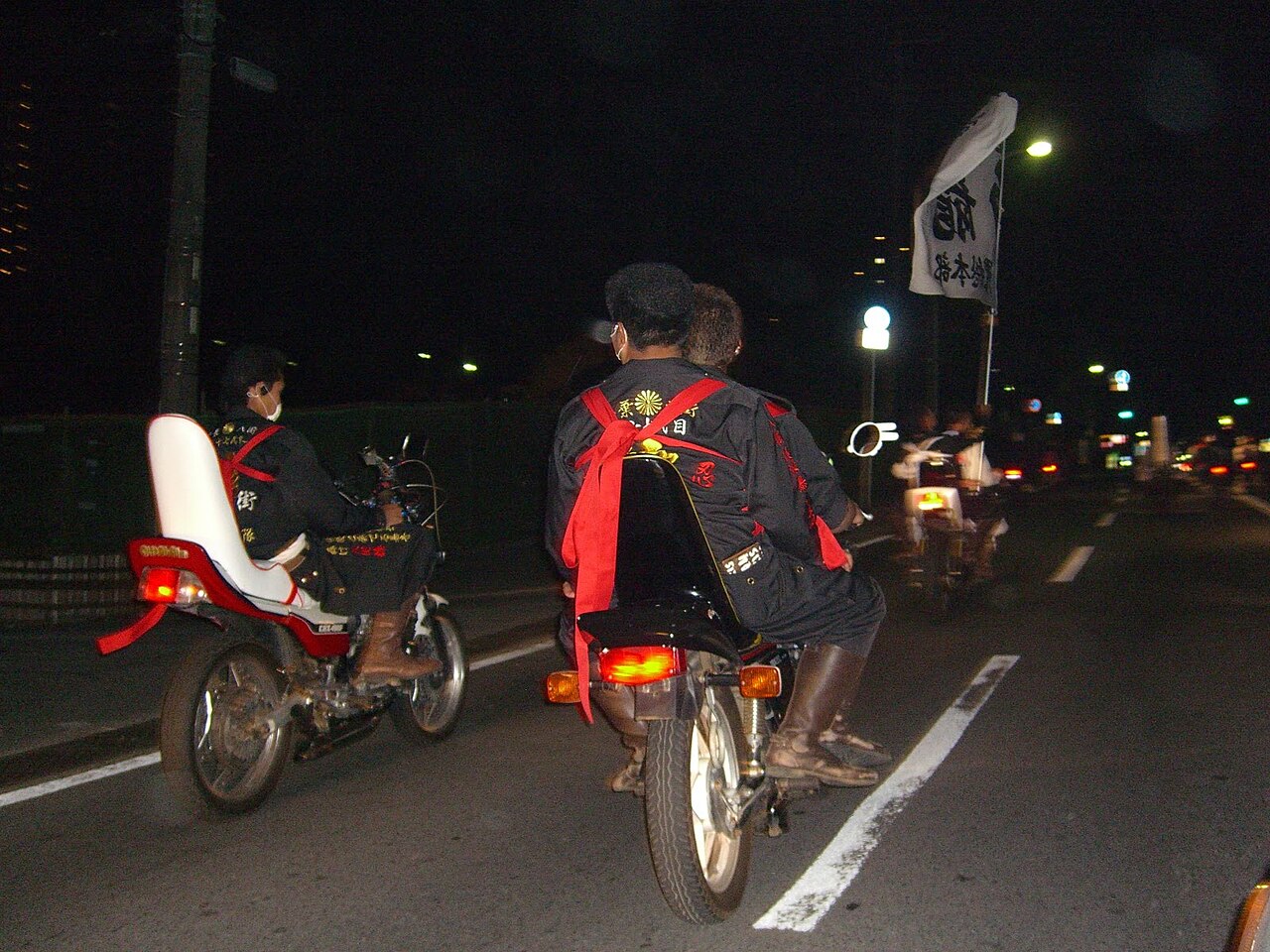 KILLER.Group.in.CHIBA, CC BY-SA 4.0, Wikimedia Commons
KILLER.Group.in.CHIBA, CC BY-SA 4.0, Wikimedia Commons
Fighting With The Law
The reckless groups of young bikers got embroiled in riots with law enforcement, and in the 1970s, they were given a new name: Bosozoku. Bosozoku means “violent running tribe”, and as the bikers grew in popularity, the proved why that name was so apt.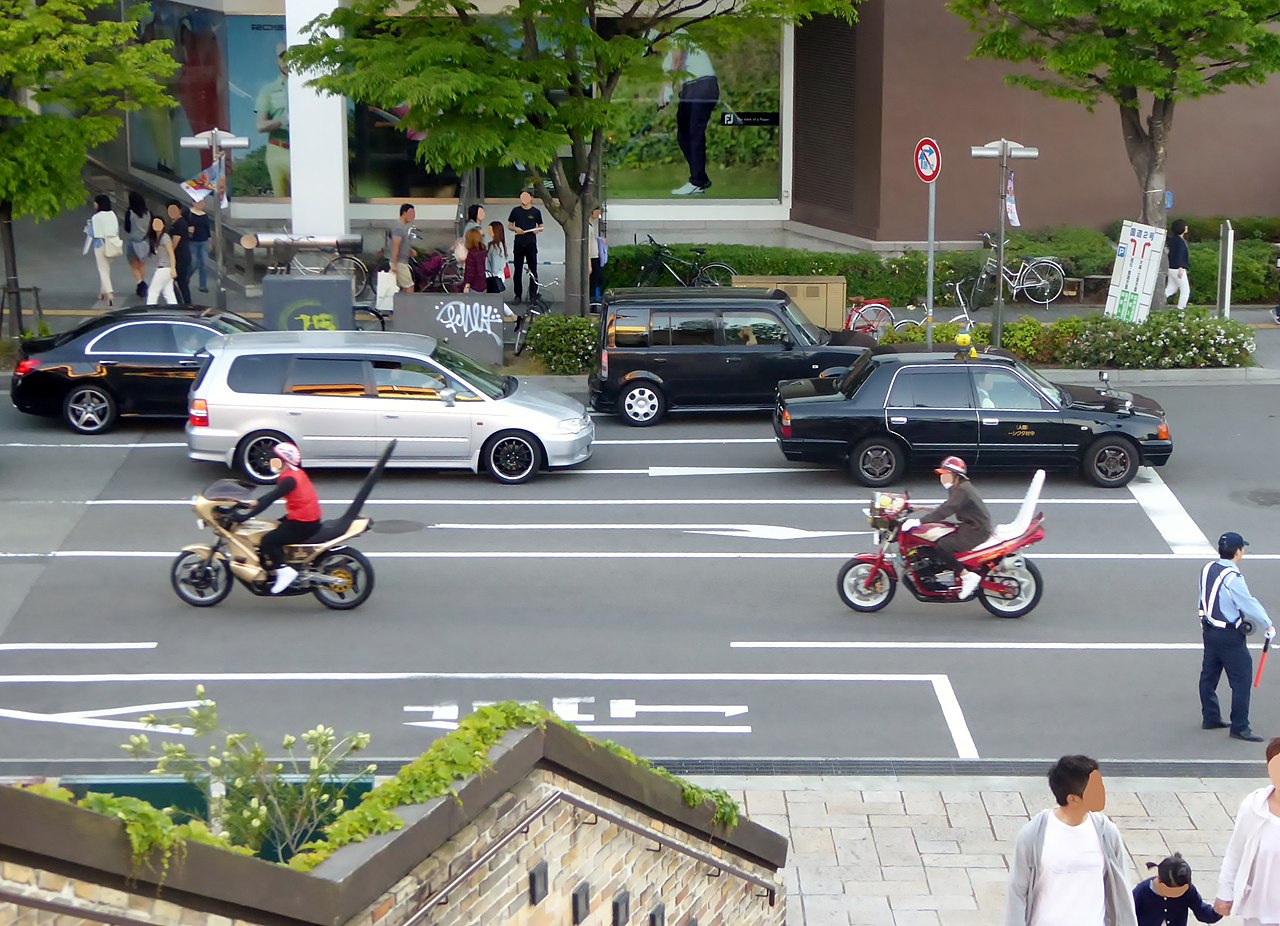 Tokumeigakarinoaoshima, CC0, Wikimedia Commons
Tokumeigakarinoaoshima, CC0, Wikimedia Commons
Cool Jacket, Dude
As more and more Bosozoku gangs popped up across Japan, biker jackets became important ways to identify the different groups. Embroidered with bold Japanese script, these jackets became important symbols and were given to members as they rose up the ranks.
The Bosozoku had made their place in the world—but what began as a bunch of restless outcasts had turned into a violent, lawless subculture.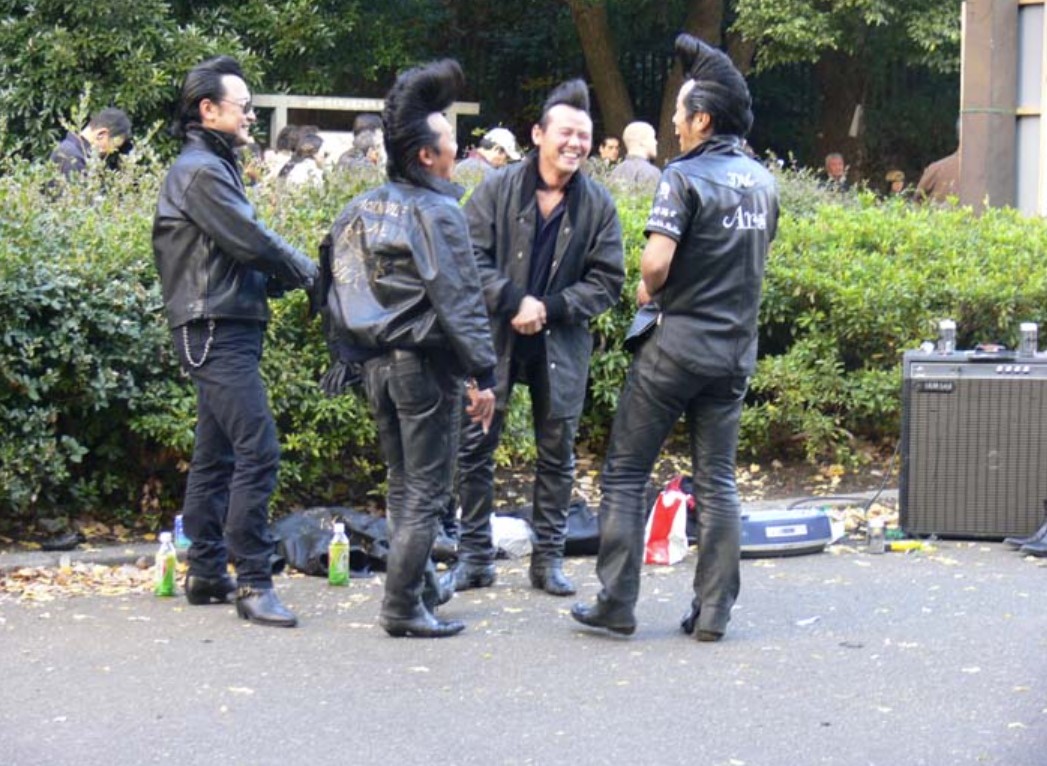 Fredrik Strömberg, CC BY-SA 3.0, Wikimedia Commons
Fredrik Strömberg, CC BY-SA 3.0, Wikimedia Commons
A Change In The Air
In the 1990s, Bosozoku culture took a darker turn. Gangs of up to 100 riders tore through Japan’s streets, swarming intersections, dodging tolls, and openly defying police. What started as a rebellious youth movement had evolved into something far more chaotic—and far more dangerous.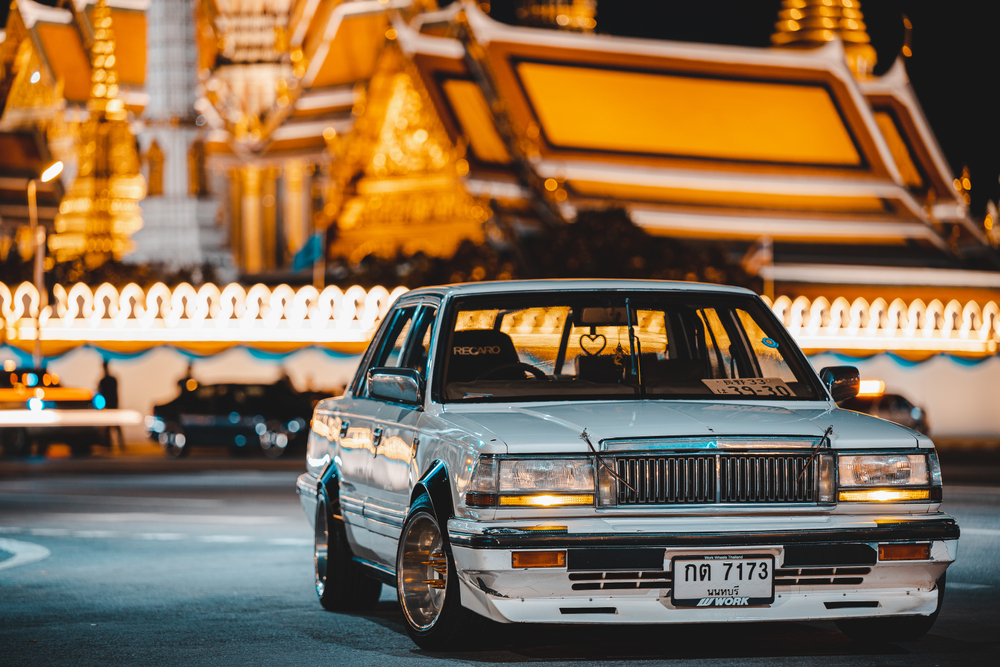 Asawin Phunphairoj, Shutterstock
Asawin Phunphairoj, Shutterstock
A Not-So-Happy New Year's
New Year’s Eve became a dangerous night to be out as the bikers would smash cars and even attack people who tried to speak out against their unruly behavior.
But things really got worse for the Bosozoku when they joined ranks with the infamous Yakuza.
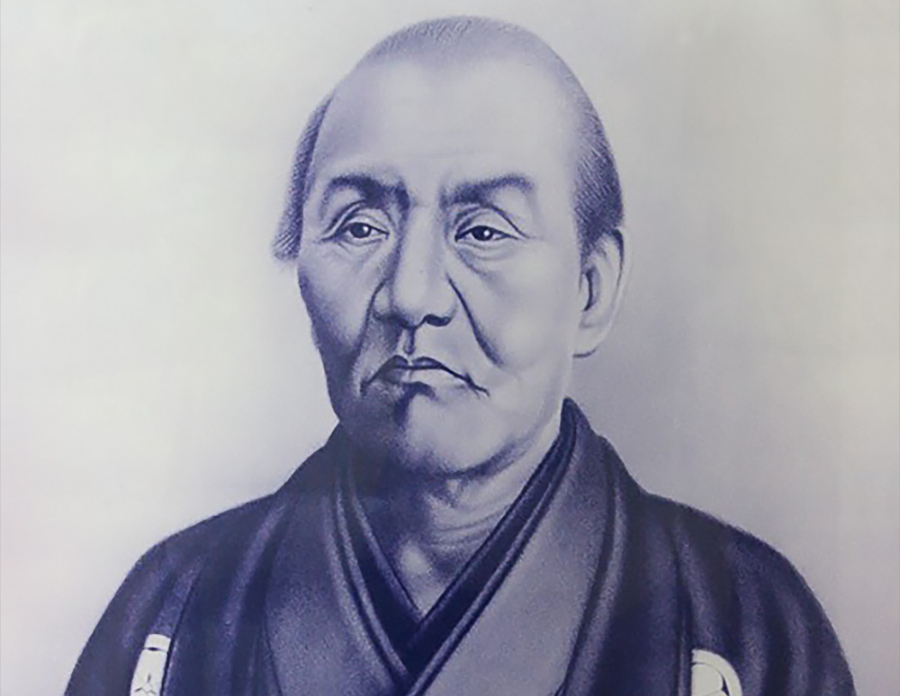 Unknown Author, Wikimedia Commons
Unknown Author, Wikimedia Commons
In Bad Company
The Bosozoku had already caught the attention of law enforcement and concerned citizens but the vitriol towards them only got worse when they started working with the Yakuza mobsters. Working with the Yakuza was a way for the lawless youngsters to make some quick cash, but their association with the infamous gang led to the Bosozoku’s downfall.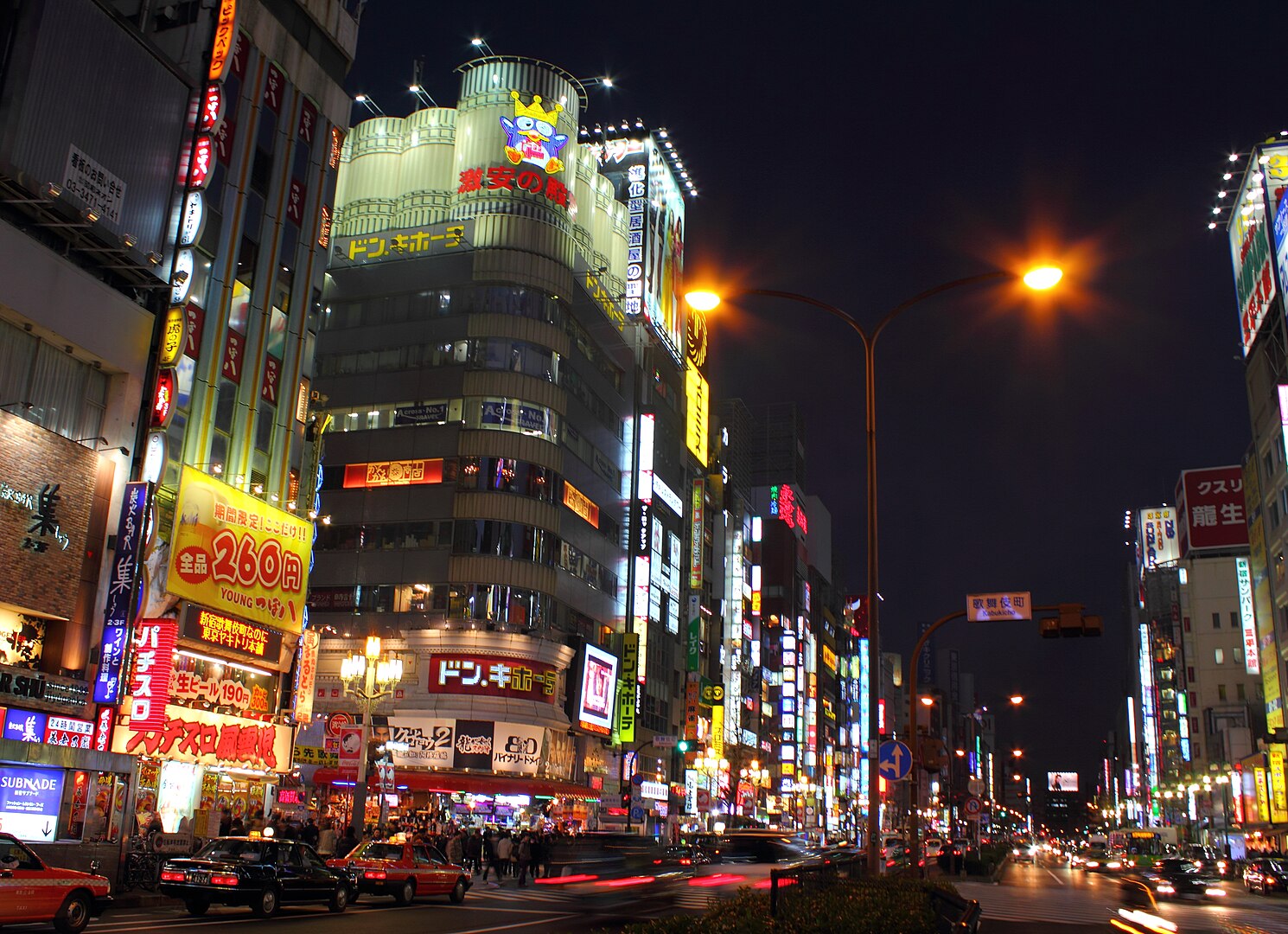 Kakidai, CC BY-SA 3.0, Wikimedia Commons
Kakidai, CC BY-SA 3.0, Wikimedia Commons
Breaking Up The Gangs
With the authorities more determined than ever to lock them up, the Bosozoku gangs started riding in smaller groups to avoid suspicion and evade arrest. Stifling their loud nature made the Bosozoku far less exciting, which led to a steep decline in their numbers.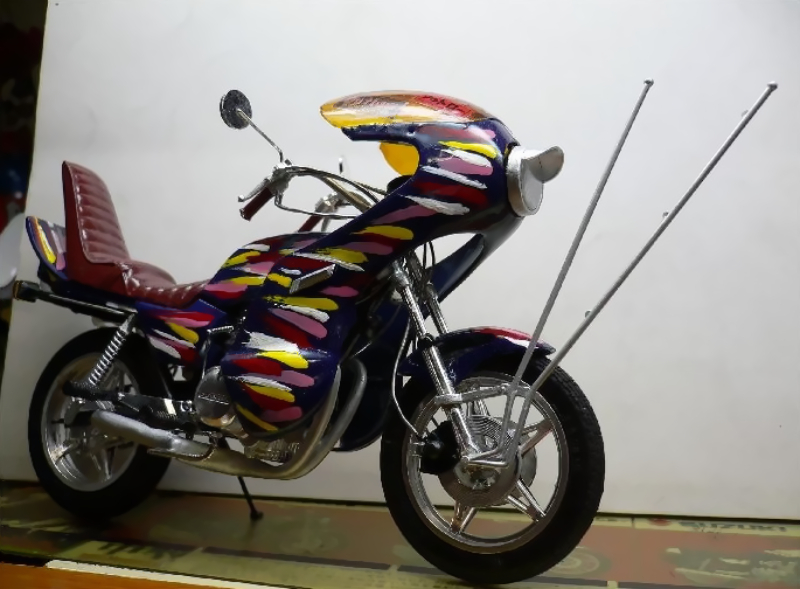 mekadon3xvtzr, CC BY-SA 3.0 , Wikimedia Commons
mekadon3xvtzr, CC BY-SA 3.0 , Wikimedia Commons
Is This The End?
When Japanese authorities cracked down and gained the power to arrest large biker groups, the thrill faded fast. By the early 2000s, Bosozoku seemed like a relic of the past. But just when it looked like the movement had died out, a new generation stepped in—and gave it a bold, unexpected revival.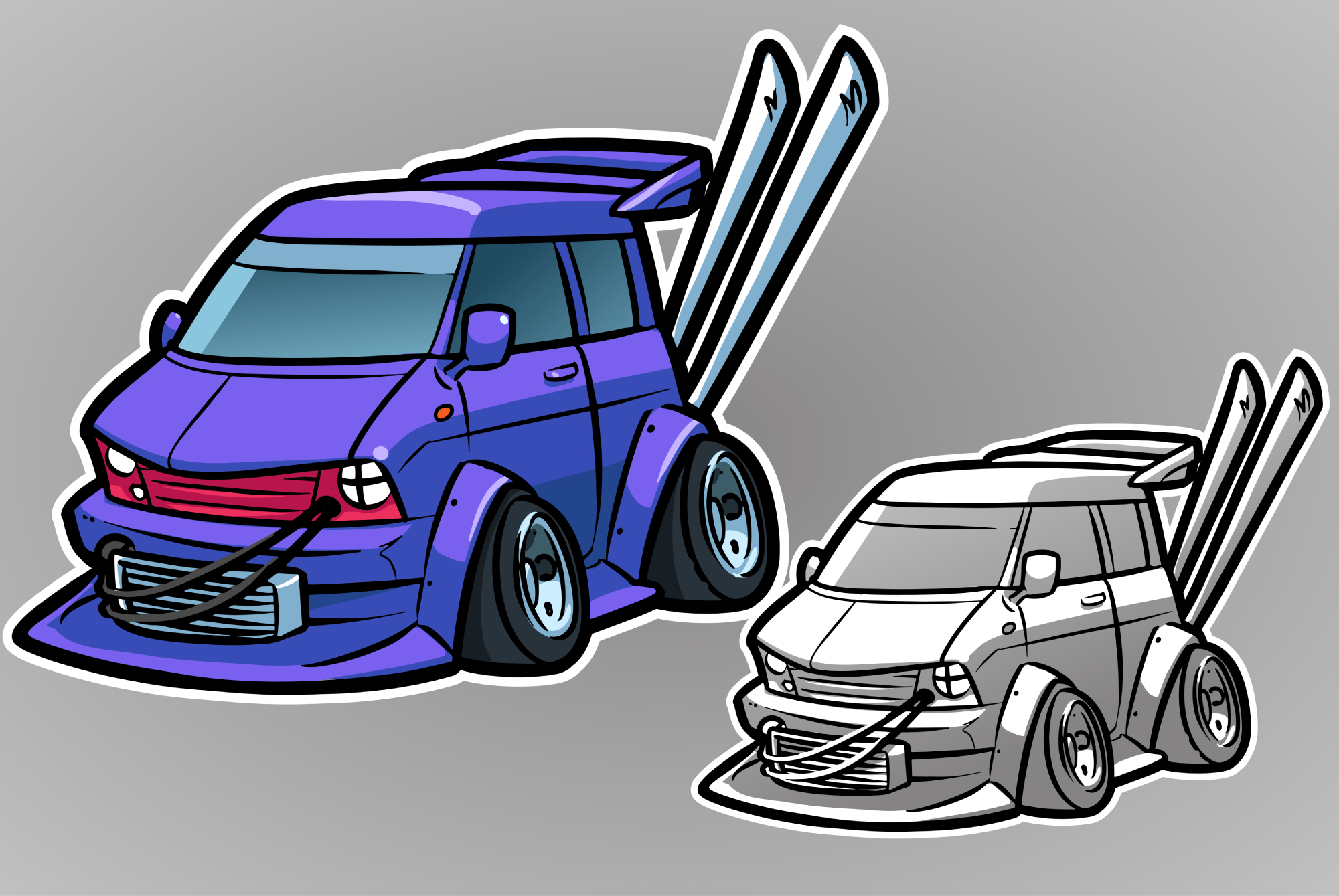 Dmitry Natashin, Shutterstock
Dmitry Natashin, Shutterstock
Reborn
Bosozoku had lost its lawless side, which put the spotlight back onto the creative aspect of the culture. It also saw the birth of the first Bosozoku cars.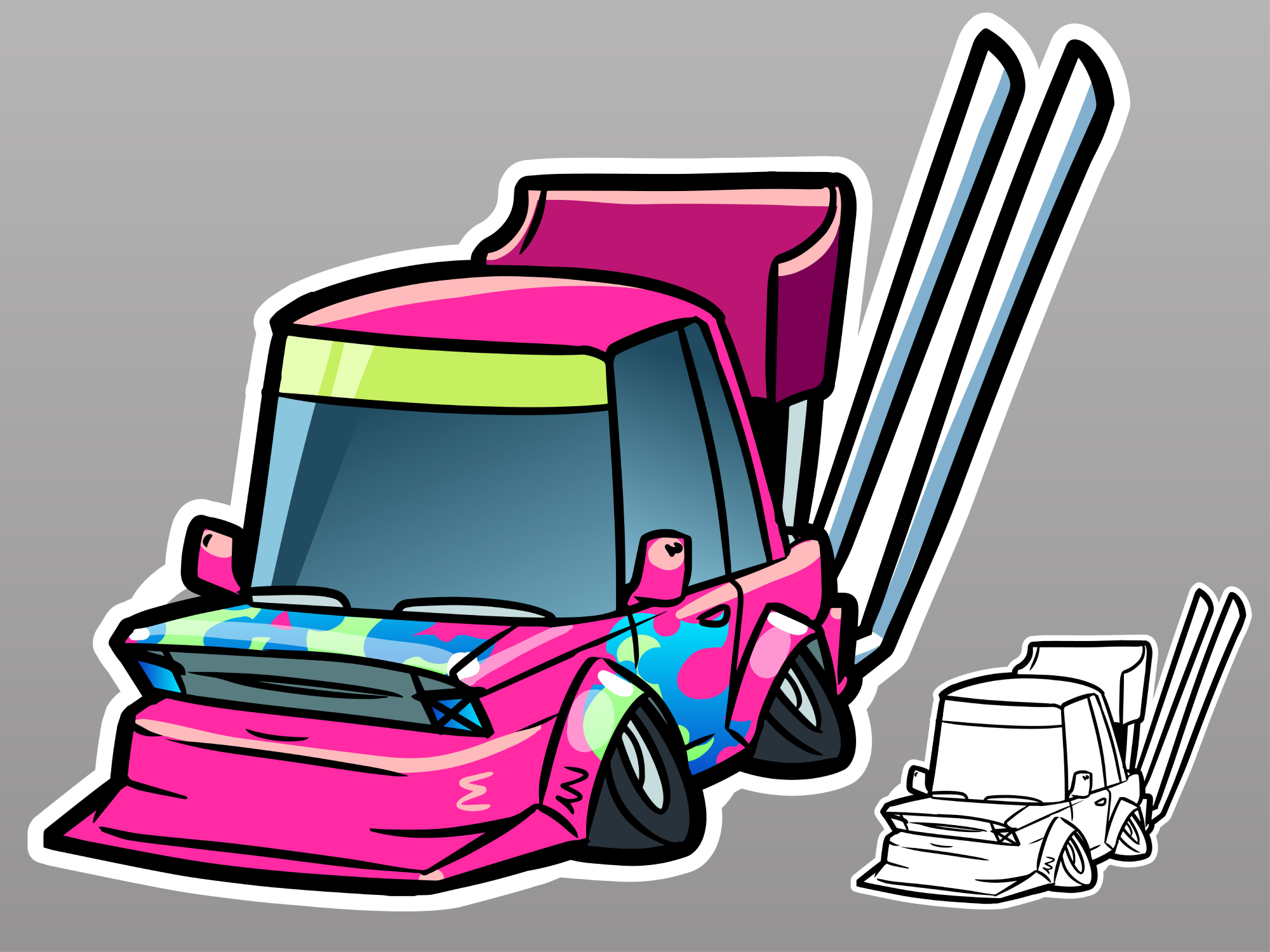 Dmitry Natashin, Shutterstock
Dmitry Natashin, Shutterstock
New Meaning
Bosozoku style has taken on new meaning. In Japan, the Bosozoku jumpsuit, tokkō-fuku, has become a fashion statement among admires of the subculture. Bosozoku fans wear them at concerts and sports events, and often embroider their tokkō-fuku with slogans that praise their favorite musicians and athletes.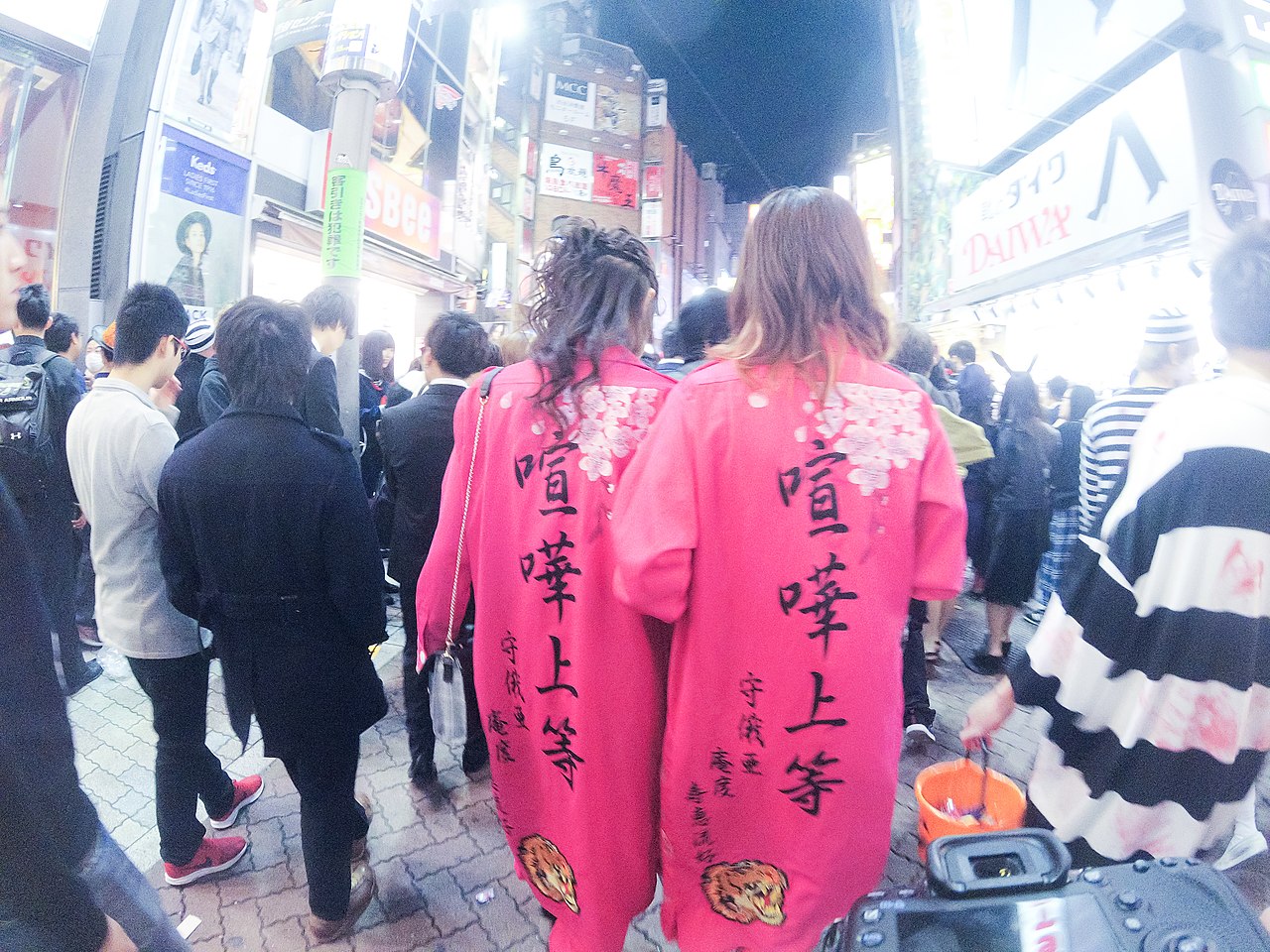 Dick Thomas , CC BY 2.0, Wikimedia Commons
Dick Thomas , CC BY 2.0, Wikimedia Commons
Not So Fast
When it comes to performance, Bosozoku cars are pretty useless. With so many wacky body modifications, these cars aren’t exactly the fastest on the road or the best at handling sharp turns. But they sure do look nice.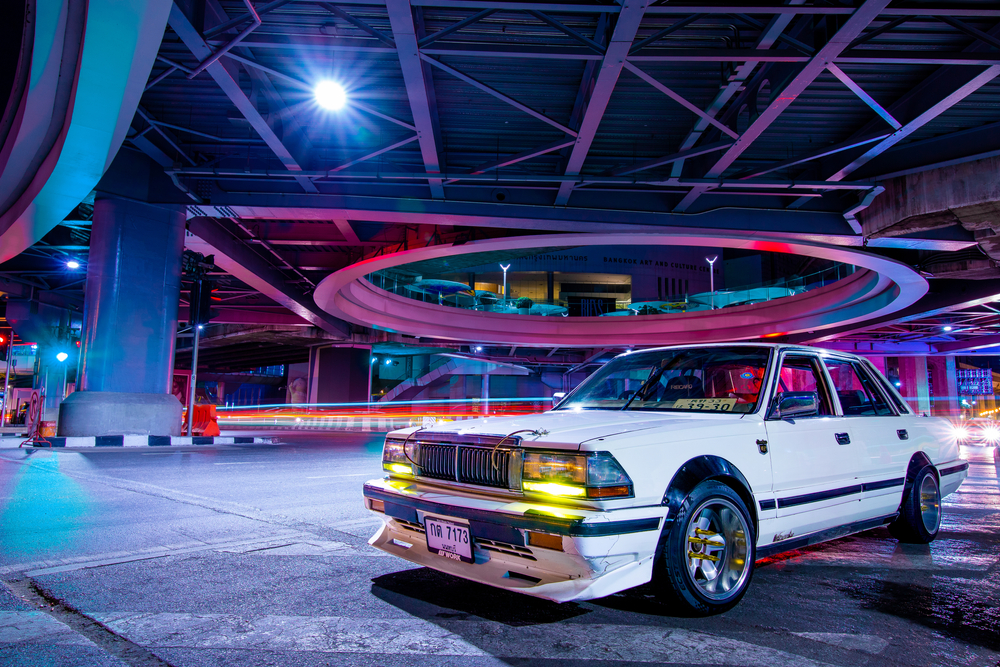 Asawin Phunphairoj, Shutterstock
Asawin Phunphairoj, Shutterstock
Get Low
Once again borrowing inspiration from the U.S., modern Bosozoku cars embraced the lowrider culture of Southern California—but cranked it up to the extreme. With dramatically lowered suspensions, some Bosozoku rides sit so close to the ground, they can barely handle a speed bump. It's low, loud, and unmistakably over-the-top.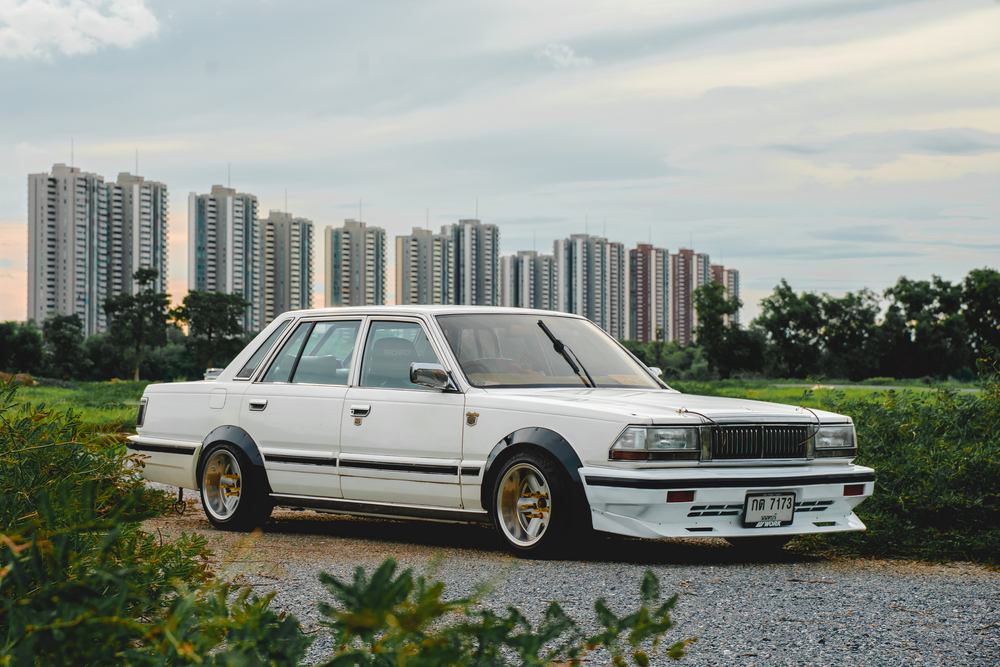 Asawin Phunphairoj, Shutterstock
Asawin Phunphairoj, Shutterstock
Noise Makers
Like Bosozoku motorcycles, Bosozoku cars are loud. Custom exhausts and the addition of airhorns means you can often hear these cars heading toward you long before you ever actually see them.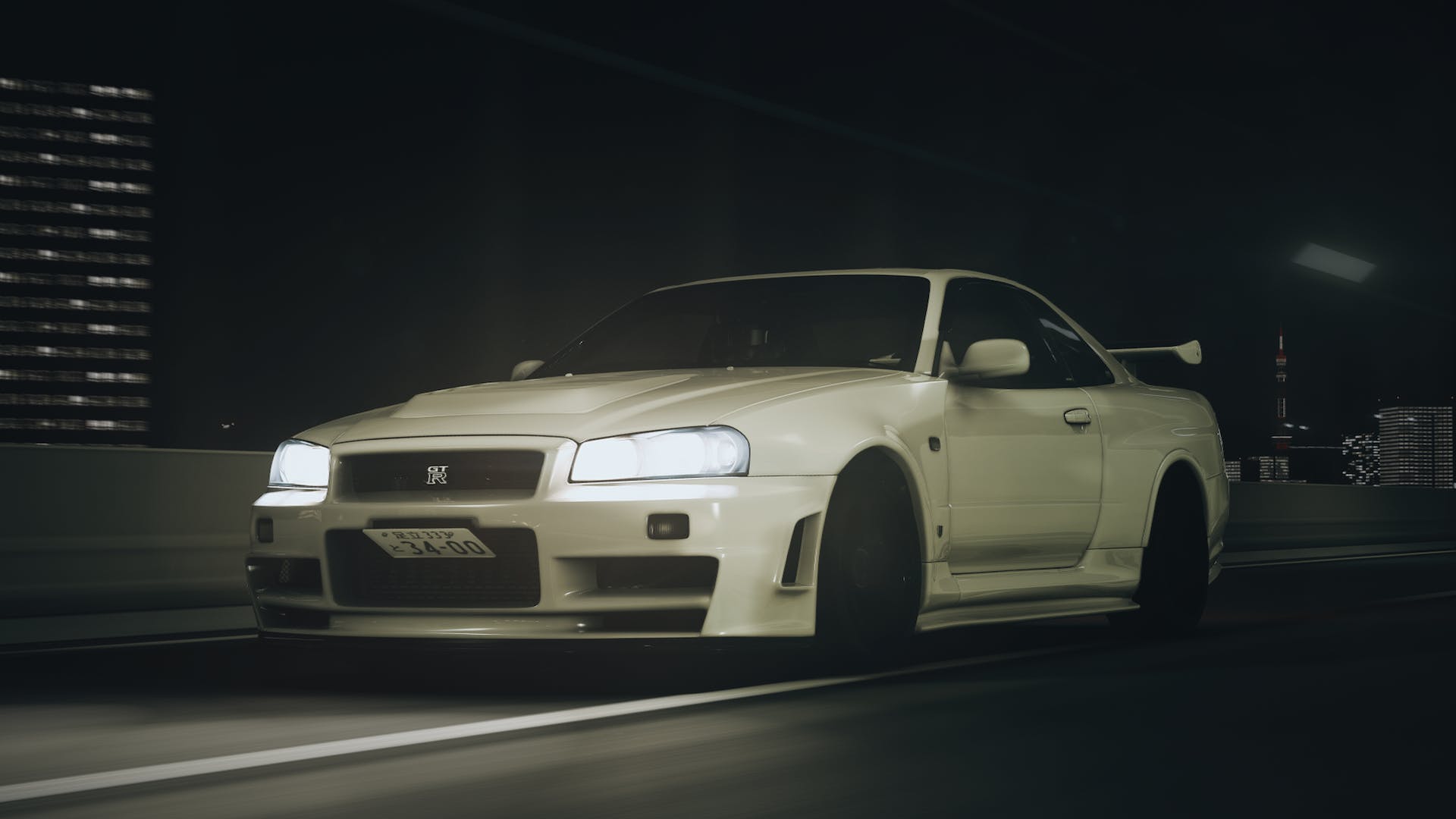 Supreet, Pexels
Supreet, Pexels
Here To Stay
In recent years, Bosozoku has transcended borders and become more popular among American car enthusiasts. Bosozoku cars are now an exciting feature at car shows around the country, drawing in large, adoring crowds.
There have been many attempts to stifle Bosozoku culture, but it’s safe to say this is one subculture that isn’t fading away anytime soon.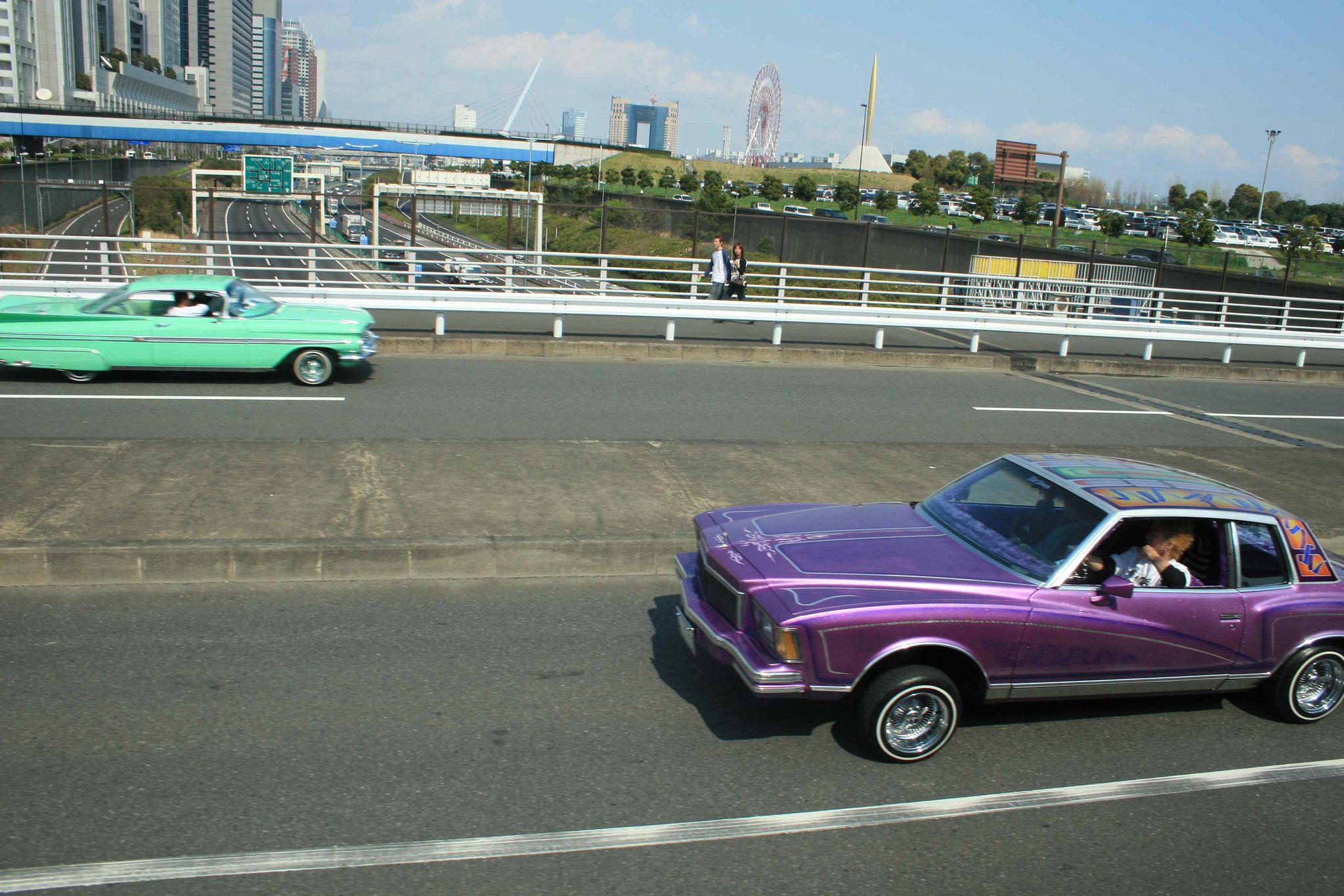 Valentin, Flickr
Valentin, Flickr

